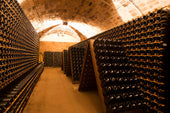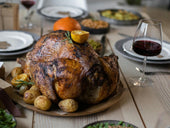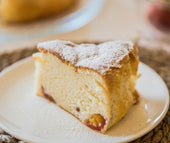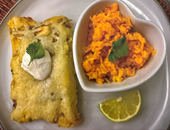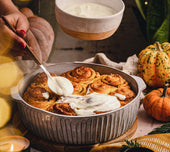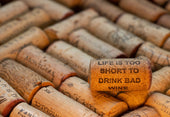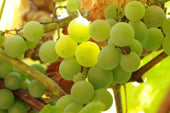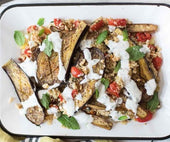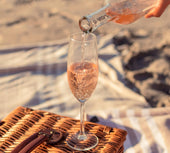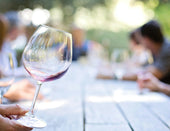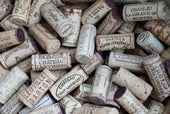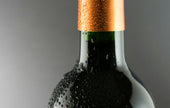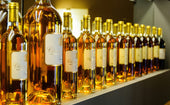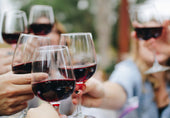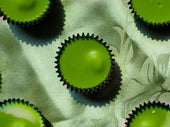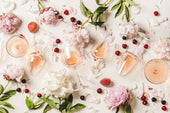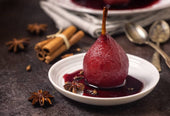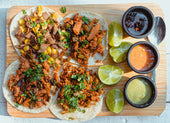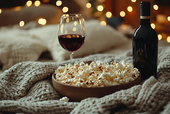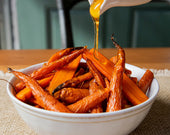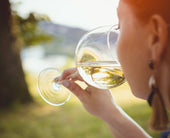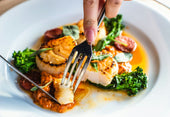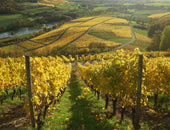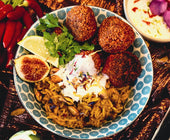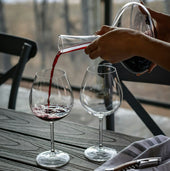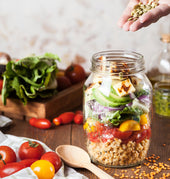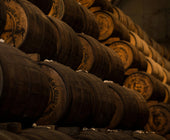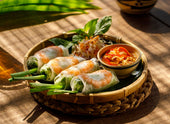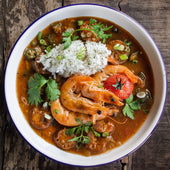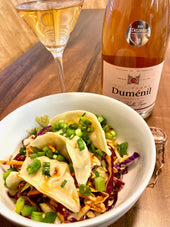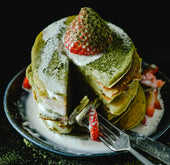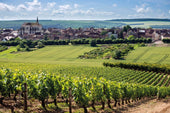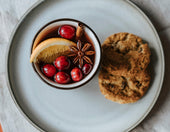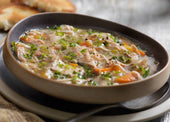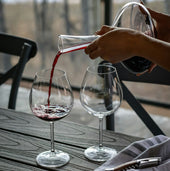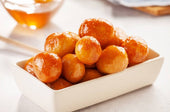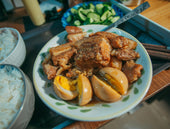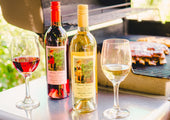
A Primer on Eco-Friendly Wine Labels

Winemaking is incredibly complex, yet wine labels are tiny. They read like coded messages because a lot of information is contained in a little piece of beautifully-designed real estate. Every single element must transmit a wealth of information. In this crowded landscape, the addition of eco-friendly jargon can become just another nugget of indecipherable information.
Most consumers understand the health benefits of buying organic table grapes, but the benefits of organic grapes and organic wine are less clear. John Williams, founder of Frog’s Leap Winery, and pioneer of organic and biodynamic vineyard techniques, said it first (and probably best): “In point of fact, it has always been wine quality that drives our farming choices.” For organic grape growers and winemakers, wine quality is the ultimate goal. (Find Frog’s Leap Winery’s Napa Valley Rutherford Sauvignon Blanc and Rutherford Estate Cabernet Sauvignon at Plume Ridge Bottle Shop).
Of all the eco-buzzwords found on a wine label, the terms sustainable, organic and biodynamic are the most informative and represent certified production techniques. These designations are not a strict hierarchy of ecological practices, as they overlap. They all seek to reduce the environmental impact of growing grapes while increasing sustainability. They use minimally invasive techniques while eschewing pesticides and chemicals. And, they all place the health and needs of the grapevine at the core of their philosophy.

The most stringent and least understood practice is biodynamic farming. Developed in 1924 in response to increased mechanization and monoculture farming (the cultivation of a single crop in one area), biodynamic practices use a philosophical and ethical approach towards creating a self-sustaining ecosystem. Through the use of only natural materials – with no help from chemical fertilizers and pesticides – it focuses on the interdependence of the grapevine with the wide variety of plants and animals living in the same environment. Some of the mystical elements of this technique are controversial, such as the use of arcane practices—like moon phases and astrological signs—to determine the best days for planting and harvesting. Demeter, the certifying agency for biodynamic farming, encourages the more esoteric aspects but doesn’t require them. Biodynamic certification does require hand-harvesting, the use of only certified-organic ingredients, and fermentation from only natural yeast. Biodynamic wines have no adjustments for acid or sugar, are aged only in oak barrels and packaged only in glass.
Suzanne Hagin, owner and winemaker at Horse & Plow Winery, compares using biodynamic techniques to using the Farmer’s Almanac. She believes that these farming practices yield higher quality grapes and, thus, wine. “One of the reasons we wanted certified grapes was so we could push back against the narrative of ‘organic wines are no different’.” Suzanne calls out her organic grapes right on the Horse & Plow label. She and fellow owner and winemaker, Chris Condos, use organic and biodynamically-farmed grapes, and they continue organic practices into their winery. Their wines are made naturally with no synthetic nutrients or additives, they contain no GMO’s, are vegan and have low sulfites. (Find Horse & Plow’s unique Orange wine “The Gardener” Pinot Gris at Plume Ridge Bottle Shop.)
Certified organic farming has many of the same requirements as a biodynamic approach, but with greater leniency in some areas. Certification still comes at a cost. Sal De Ianni, the winemaker at Truchard Vineyards, oversees 400 acres, 50 of which converted to certified-organic farming with the financial support from their buyer, John Williams, of Frog’s Leap. Sal sees a 30% - 50% increase in the farming cost of those acres due to the manual labor for weed removal and hand fertilizing, plus the high cost of organically-certified fertilizers. Only a portion of that increased expense is passed on to the buyer, but Sal notes, “For John, we’re willing to do the extra.” (Find Truchard’s Carneros Cabernet Sauvignon, and Estate Carneros Pinot Noir at Plume Ridge Bottle Shop.)
Certification is not every grower’s primary goal. Stephen Singer, owner of Baker Lane Vineyards, is indifferent towards acquiring organic or biodynamic certification. “What we’re trying to do is to do right by the property, and right by ourselves, by using regenerative farming practices and values that are intrinsic to how we live,” he explains. “That is the way in which our commitment to biodynamics is most evident. It’s not that we’re particularly guided by the calendar—it’s more just a sense of commitment to respecting the natural harmonies that are in evidence if you’re paying attention to them.” Since 2002, Baker Lane Vineyards has “assiduously and organically” farmed Syrah and Viognier in Sonoma County. Singer credits his 15 years as a wine director in the restaurant business with his passion for organic practices, “it was elemental to my experience with Chez Panisse. The gospel of organic food and treating grapes as if they were a precious ingredient was a natural transition.” (Find Baker Lane’s Sonoma Coast Pinot Noir at Plume Ridge Bottle Shop.)
Many grape growers who still maintain organic principles, but are unable or unwilling to commit to organic farming, employ a method whose overarching principle is do no harm. Sustainable farming promotes the three “goods”: good for the environment, good for the grape and wine, and good for the community. By taking the health and welfare of the public into account, sustainability expands its goal beyond organic and biodynamic techniques. Sustainable practices seek to benefit the land, the people who work it, and the community through promoting the value of vineyards as green space and advocating stewardship to grape growers and winemakers.
Plume Ridge Bottle Shop also promotes the benefits of biodynamic, organic and sustainable wine production techniques. They offer a plethora of imported and domestic wines created through these methods. Click here for a deep dive into their curated collection.
 Patty Lyn Tweten is a writer, graphic designer and vineyard owner. She is also a devoted fan of rosés having helped her husband make their own with the sagniée method. Instagram Linkedin
Patty Lyn Tweten is a writer, graphic designer and vineyard owner. She is also a devoted fan of rosés having helped her husband make their own with the sagniée method. Instagram Linkedin


